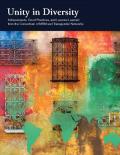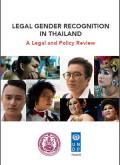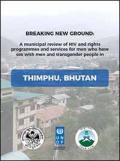Publications on Transgender
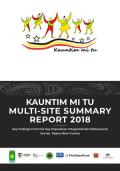
Resource | Publications,
Kauntim mi tu (KM2), an integrated bio-behavioral survey (IBBS) of women and girls who sell and exchange sex (FSW) and men who have sex with men and transgender women (MSM/TG), provides much needed information to support the scale up of essential HIV prevention and treatment services for these populations.
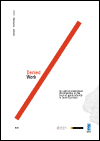
Resource | Publications,
Discrimination and lack of equal employment opportunities are common experiences of trans people. For some, problems arise while they are already employed, especially when they are trying to engage in a social transition in the workplace. For many, however, problems arise at the job hiring stage. Identification documents and educational certificates often ‘out’ trans people, even when their physical appearance does not. With employers either prejudiced or anxious about the possible reactions of co- workers and customers, trans people don’t get hired.
This report looks into employment discrimination faced by transgender people while seeking employment in four countries in South-East Asia – Malaysia, Singapore, Thailand, and Vietnam. The findings from this study provide direct evidence of discrimination against trans people in job hiring practices in the region.
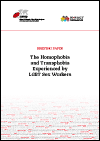
Resource | Publications,
Lesbian, gay, bisexual and transgender (LGBT) people experience targeted homophobia and transphobia at every level – including legal, political and social. For sex workers who are LGBT, discrimination on the grounds of sexual orientation and gender identity adds to and intensifies the discrimination they experience as sex workers. This Briefing Paper written in collaboration with NSWP documents the stigma and discrimination experienced by LGBT sex workers and highlights differences in their experiences when compared with other members of their respective communities.
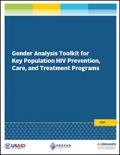
Resource | Tools,
The toolkit contains all the information needed to conduct a comprehensive gender analysis. However, in recognition that programs may want to conduct a more streamlined analysis, key steps can be found on pages 7-16. Each step can be streamlined based on time, resources, and information available for a gender analysis.
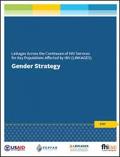
Resource | Publications,
The Linkages Across the Continuum of HIV Services for Key Populations Affected by HIV (LINKAGES) project envisions a world in which members of key populations (KPs)—gay men and other men who have sex with men (MSM), sex workers (SWs), people who inject drugs (PWID) and transgender people—can exercise their right to live healthy and productive lives.
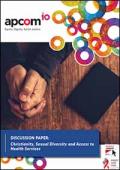
Resource | Publications,
This paper examines the attitudes of institutional and popular Christianity towards men who have sex with men (MSM), transgenders (TG) and HIV, the impact of such attitudes towards MSM and TG in relation to HIV prevention and treatment, and Christian teachings and strategies that affirm MSM, TG and PLHIV.
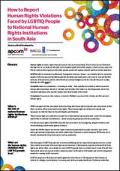
Resource | Publications,
Like all people, if LGBTIQ people are to achieve wellbeing and be respected and given worth in society they need to be assured of human rights and protections. LGBTIQ people are often discriminated against for who they are. This happens in their homes, at schools or colleges, at workplaces, in housing, and while accessing healthcare. National human rights institutions (NHRIs) can be approached by the victimised LGBTIQ people (or through their representatives) who seek to complain about rights violations that they have experienced.






